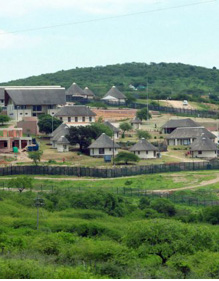|
Getting your Trinity Audio player ready...
|
 Are you witnessing corruption but don’t know what to do about it? Ask the team of Corruption Watch experts what to do by writing to: letters@businesstimes.co.za and mark your letter 'Dear Corruption Watch'.
Are you witnessing corruption but don’t know what to do about it? Ask the team of Corruption Watch experts what to do by writing to: letters@businesstimes.co.za and mark your letter 'Dear Corruption Watch'.
Dear Corruption Watch
I read that part of the work for President Zuma’s Nkandla homestead upgrade did not go out to public tender because it was deemed ‘emergency work’. What does this mean? Can state entities disregard procurement laws in emergencies and what constitutes an emergency? – Curious
Dear Curious
In cases of genuine emergency, government departments are permitted to deviate from procurement guidelines. A natural disaster such as a flood would probably qualify as one of those instances that justified deviation from procurement procedures.
The refurbishment of Nkandla, the President’s private homestead, at a cost of R200million, definitely does not!
The framework within which government departments contract for goods or services is set by our Constitution. When an organ of state contracts for goods or services, it must do so in accordance with a system that is equitable, transparent, competitive and cost-effective.
Treasury regulations require all heads of department to establish and maintain effective, efficient and transparent systems of financial management and internal control.
Individual government departments are required to establish committees to ensure that government procurement adheres to treasury requirements. For example, procurement over R500 000 must be approved by internal committees known as Bid Adjudication Committees and must go out to tender.
The objective of these regulations is to ensure that government departments are held accountable for how they spend taxpayers’ money and fall within budgetary guidelines. They are not designed or intended to prevent government departments responding timeously to a natural disaster or some other event that could not be foreseen. For that reason, the regulations do make provision for deviation from the rules. In cases of deviation, heads of department need to motivate why this was necessary, after the fact.
The issue with the Nkandla refurbishment is not whether or not government procurement policies were followed. The real question is whether it is lawful for a government department to spend R200million renovating the President’s private residence. The answer to this question must be no.
The starting point for any legal evaluation of this splurge of public funds to improve the private residence of our president is the Executive Members Ethics Act and the Code adopted to give effect to it.
The Act and the Code bind all Cabinet members, including the president. They prohibit the President from acting in a way that is inconsistent with his office, from using his position to enrich himself, or acting in a way that may compromise the credibility or integrity of his office or of the government. The Code further prohibits the president from disregarding the administrative rules that apply to him.
President Zuma is also in breach of the Ministerial Handbook. It is a guideline for members of the executive on the benefits and privileges to which they and their families are entitled. The Ministerial Handbook prohibits the state from paying for the renovation of the private residences of cabinet members – even when used as official residences. Chapter 4 states that members of the cabinet “are responsible for all costs related to the procurement, upkeep and maintenance of private residences used for official purposes”.
The Ministerial Handbook does allow for part of the cost of security arrangements at the private houses of “Public Office Bearers” to be carried by the state. However, the state’s contribution to security measures at a private residence of a public office bearer is restricted to R100 000.
The spending of more than R200 million on upgrades on the private home of the president does not relate to security measures at his home. It is in clear breach of the Ministerial Handbook and is unlawful.
Take a stand and report an incident of corruption. This article originally appeared in the Sunday Times Business Times on 11 November 2012.
Excerpt
In cases of genuine emergency, government departments are permitted to deviate from procurement guidelines however this does not apply to Nkandla. Therefore procurement procedures should have been followed.
File Upload



